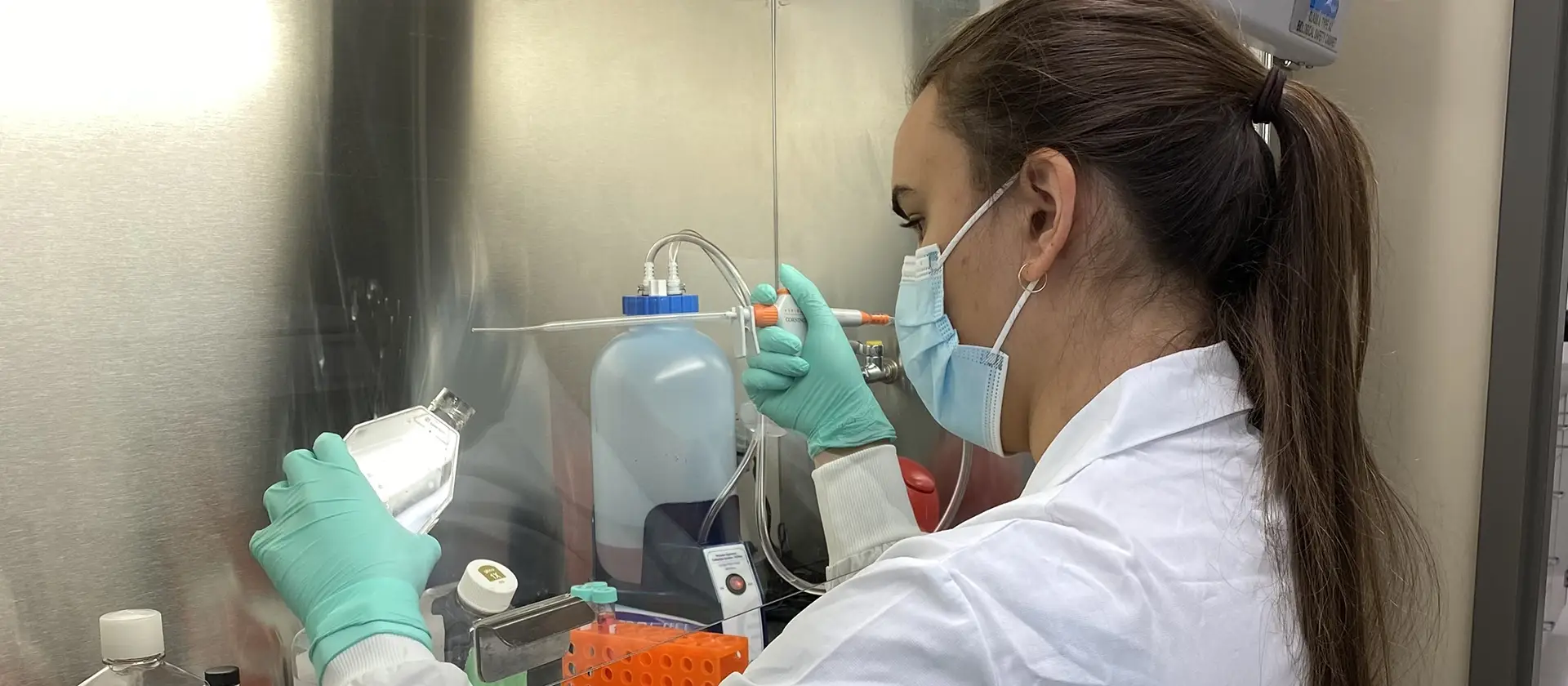
Bioscience and Policy (PhD)
The Doctor of Philosophy (PhD) in Bioscience and Policy is a research-intensive degree that provides advanced training in the life sciences while also training students to place life sciences research into the broader context of a modern society.
This program provides students with theoretical background and technical skill in their field of biology, while also helping them understand implication of bioscience research for policy development and build skills to communicate about their research to a range of audiences. Our students are trained in science and ethics, science and public policy and science in the context of national and international issues.
Students in the program spend the bulk of their time working with a faculty supervisor on a PhD thesis project designed to make a novel scientific contribution in a range of fields such as genetics and genomics, bioinformatics, cell biology, physiology, behavioural ecology, and natural resource management.
In addition to the thesis, students complete a two-part candidacy exam based on their research area during their first two years, and at least 12 credit hours of courses which provide additional training in policy application/development, communication to scientists and non-scientists, and technical skills in bioscience. All students receive training in science communication and participate in at least two science outreach events prior to completion.
Expected time to graduate is 4 years with a maximum of 7 years.
How to Apply
- Consult our list of supervisors here and contact a potential supervisor doing research in your field of interest to ask if there is an available opening in their lab. We suggest reviewing your proposed supervisor's research first and including a resume or C.V. when contacting them. Once you've identified a prospective supervisor, apply: uwinnipeg.ca/apply-to-grad-studies
- In addition to the completed application form, the following must be included:
- Transcripts are required from ALL recognized, post-secondary institutions attended, whether or not a degree has been awarded. For initial assessment purposes only, copies of unofficial transcripts are preferred. Official transcripts, sent directly from the post-secondary institutions, will be required if you are recommended for admission.
- Contact information from two individuals familiar with your academic work and who will provide a letters of recommendation
- English language requirement scores (where applicable).
- Other supporting documents if applicable: scanned copies of name change, CV/ resumé, proof of permanent residency
- In addition to the maximum 300-word summary of the proposed research on the application form, you may include an additional 2 pages (maximum) describing your proposed research project.
- Official documents should be sent to the Graduate Studies Admissions Office, The University of Winnipeg, 515 Portage Avenue, Winnipeg, MB Canada R3B 2E9.
Deadline to submit a complete application package, with all supporting documents, is February 1. In rare cases (e.g., if a supervisor’s funding arrangements require an earlier start) a Spring (May) intake can be considered.
Program Contacts
email: bioscience@uwinnipeg.ca
Visit the Department websiteGraduate Studies Admissions Office
phone: 204.786.9309
email: graduateadmissions@uwinnipeg.ca
For more detailed instructions on the application process, visit Online Application.
In any case where The University of Winnipeg Academic Calendar and this webpage differ, the current Calendar takes precedence.
Program Contacts
email: bioscience@uwinnipeg.ca
web: uwinnipeg.ca/biology
Graduate Studies Admissions Office
phone: 204.786.9309
email: graduateadmissions@uwinnipeg.ca
In any case where the University’s Academic Calendar and this fact sheet differ, the current Calendar takes precedence.
Last Updated: 08/25/2025
Last Updated: 08/25/2025

